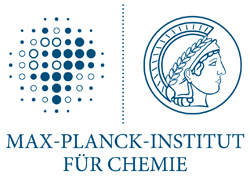Investigating global air pollution

At 10.30 a.m. on Tuesday morning the High-Altitude and Long-Range Research Aircraft (HALO) left the German Aerospace Center Airbase in Oberpfaffenhofen, and took off to the Cape Verde Islands.
This marked the official beginning of the Chemistry of the Atmosphere Field Experiment in Africa (CAFE-Africa)—a mission coordinated by the Atmospheric Chemistry Department of the Max Planck Institute for Chemistry (MPIC) in Mainz.
The objective of the research mission is to study the influence of the massive biomass burning emissions from Africa on the atmospheric composition and oxidation capacity over the tropical and subtropical Atlantic Ocean. It is expected that these emissions combine with the strongly increasing urban-industrial pollution and with desert dust from the Sahara and may thus change chemically and physically.
The mission will be conducted out of Sal on the Cape Verde Islands and will continue until September 7th, 2018. During these five weeks the HALO research aircraft will fly along the coast and over several countries in Africa to collect unique data, needed for the understanding of long-distance pollution transport over the Atlantic and further areas downwind.
“The Max Planck Institute for Chemistry is using the HALO research aircraft in order to analyze the chemistry and transport of global air pollution. CAFE-Africa focuses on regions from which little data is available so far,” says Jos Lelieveld, the mission’s principal investigator and director at MPIC.
In order to achieve these objectives, the scientists on board the aircraft will use a multitude of state-of-the-art in-situ and remote sensing instruments for the measurement of trace gases and aerosol particles. Among the gases measured will be highly reactive radicals, ozone, nitrogen oxides, volatile organic compounds, their oxidation products (e.g., aldehydes, ketones and peroxides), reactive tracers, greenhouse gases and the physical-chemical properties of aerosols.
The mission will take place over the equatorial and south Atlantic. Secondary bases (for fuel stops) will be located on and near the African continent. Besides transfer flights to the operational base in Sal (Cape Verde Islands), 10–12 scientific flights (100 flight hours) are planned.
Prof. Dr. Jos Lelieveld
Mission Principal Investigator
Max Planck Institute for Chemistry, Mainz
E-Mail: jos.lelieveld@mpic.de
Phone: +49(6131)305-4000
Dr. Marcel Dorf
Mission coordinator
Max Planck Institute for Chemistry, Mainz
E-Mail: marcel.dorf@mpic.de
Phone: +49(6131)305-4331
Media Contact
More Information:
http://www.mpic.de/All latest news from the category: Life Sciences and Chemistry
Articles and reports from the Life Sciences and chemistry area deal with applied and basic research into modern biology, chemistry and human medicine.
Valuable information can be found on a range of life sciences fields including bacteriology, biochemistry, bionics, bioinformatics, biophysics, biotechnology, genetics, geobotany, human biology, marine biology, microbiology, molecular biology, cellular biology, zoology, bioinorganic chemistry, microchemistry and environmental chemistry.
Newest articles

A universal framework for spatial biology
SpatialData is a freely accessible tool to unify and integrate data from different omics technologies accounting for spatial information, which can provide holistic insights into health and disease. Biological processes…

How complex biological processes arise
A $20 million grant from the U.S. National Science Foundation (NSF) will support the establishment and operation of the National Synthesis Center for Emergence in the Molecular and Cellular Sciences (NCEMS) at…

Airborne single-photon lidar system achieves high-resolution 3D imaging
Compact, low-power system opens doors for photon-efficient drone and satellite-based environmental monitoring and mapping. Researchers have developed a compact and lightweight single-photon airborne lidar system that can acquire high-resolution 3D…





















